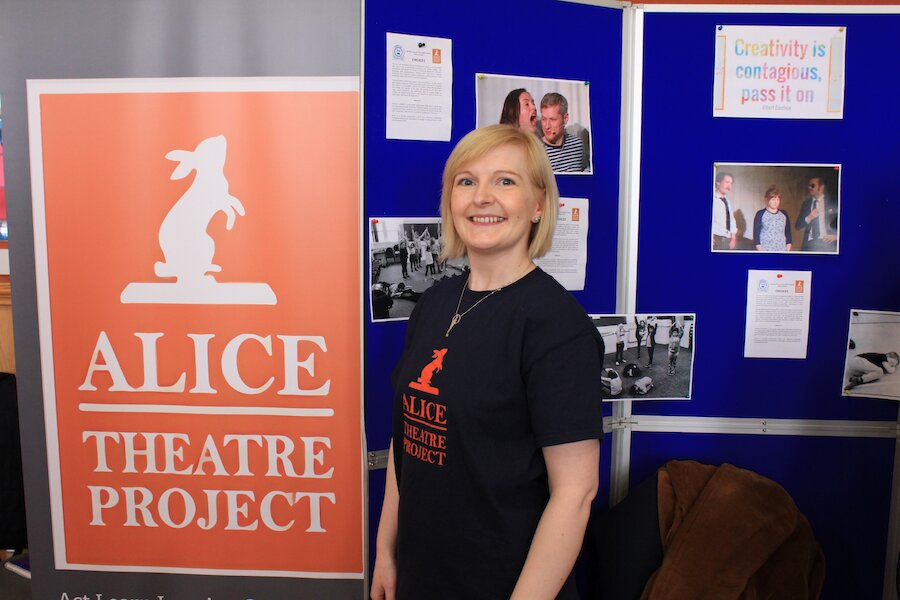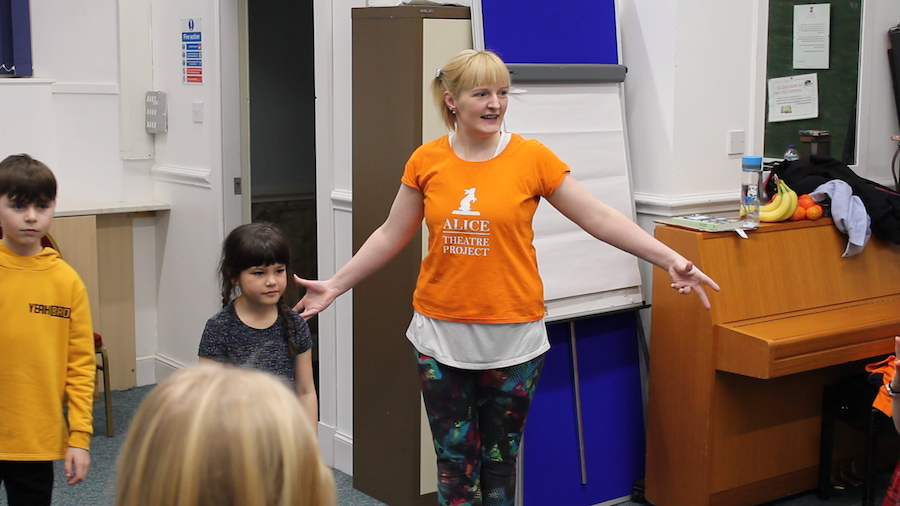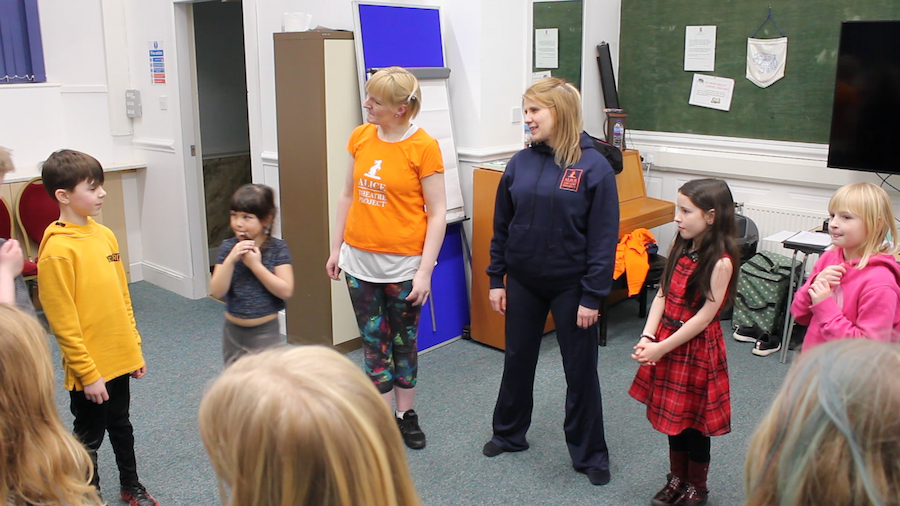Shetland’s theatrical scene is a lively and bustling one, with numerous groups meeting and performing regularly to devoted local audiences. And, thanks to one local entrepreneur, even the youngest budding thespian has a chance to hone their skills.
ALICE Theatre Project, the brainchild of veteran dramatist Stephenie Pagulayan, runs successful and busy workshops for children of various ages to instill theatrical skills, confidence and performance ability in a playful and innovative manner.
Each Saturday, Stephenie and her staff run three classes for different ages in Islesburgh Community Centre, with a whole-year learning programme divided up into terms. The first two terms are on technique, theatrecraft and core skills and the third term is on devising and creating a final performance, which the class is currently preparing for.
The business of playing
Stephenie, who has been involved in theatre for her entire adult life, told Promote Shetland that in 2017 she identified a gap in the market for providing theatre classes for children as well as adults:
“I’ve been doing drama since I was about nine years old, and I got a lot out of it growing up,” Stephenie said. “I know first-hand the benefits of participating in something like theatre and drama can bring. So I had this aspiration of doing something to share that – to share making theatre with people.
“I said ‘There’s something here, there’s something in Shetland that’s missing in terms of skills development.’ There’s lots of opportunities to do theatre, there’s a fabulous community of amateur theatre in Shetland which is really strong, but when you’re in an amateur theatre show, your focus is on the show and there’s very little opportunity to learn skills development.”
Stephenie conducted an online survey via social media in December 2017 to gauge the demand for theatre classes in Shetland. The results were positive, with 97% of respondents indicating they would be interested in the classes. The feedback gave Stephenie the foundations to build a pilot project on.
In early 2018, she launched a seven-week pilot for primary school children followed by a feedback session, plus a two-part theatrical skills workshop for adults, focusing on character-building. Over all the pilot sessions there were an astonishing 97 participants, with over 100 attending the feedback session.
“At the same time I did a family workshop,” Stephenie said. “The whole intergenerational aspect of theatre is really interesting to me, and I think in our society… we need space in our families to actually play creatively together with our imaginations; not with devices, not with any distractions. And that was really well attended, there was over 30 people at that first one.”
Making the vision a reality
Using the feedback from the pilot, Stephenie returned to the drawing board and worked on a year-long workshop programme, which she launched in August 2018. Initially starting with just two classes for primary school-age children, she had to add a third almost immediately to cope with demand.
Stephenie noted that she wasn’t just winging it; the entire project had been carefully planned out, and she knew from the pilot stage that ALICE was a viable business: “I’d come up with the concept, I’d come up with the brand, I’d come up with a sort of loose design of the type of stuff I wanted to do… In between the survey and the pilot, that’s when I was really squirreling away, making sure I had all my research, financial projections, working out my three-year plan.
"And then I did the pilot and it was a success. So I went back, revisited the business plan, rewrote aspects of it that were different to what I’d expected them to be, and took feedback from parents on the actual structure of the classes and the workshops."


